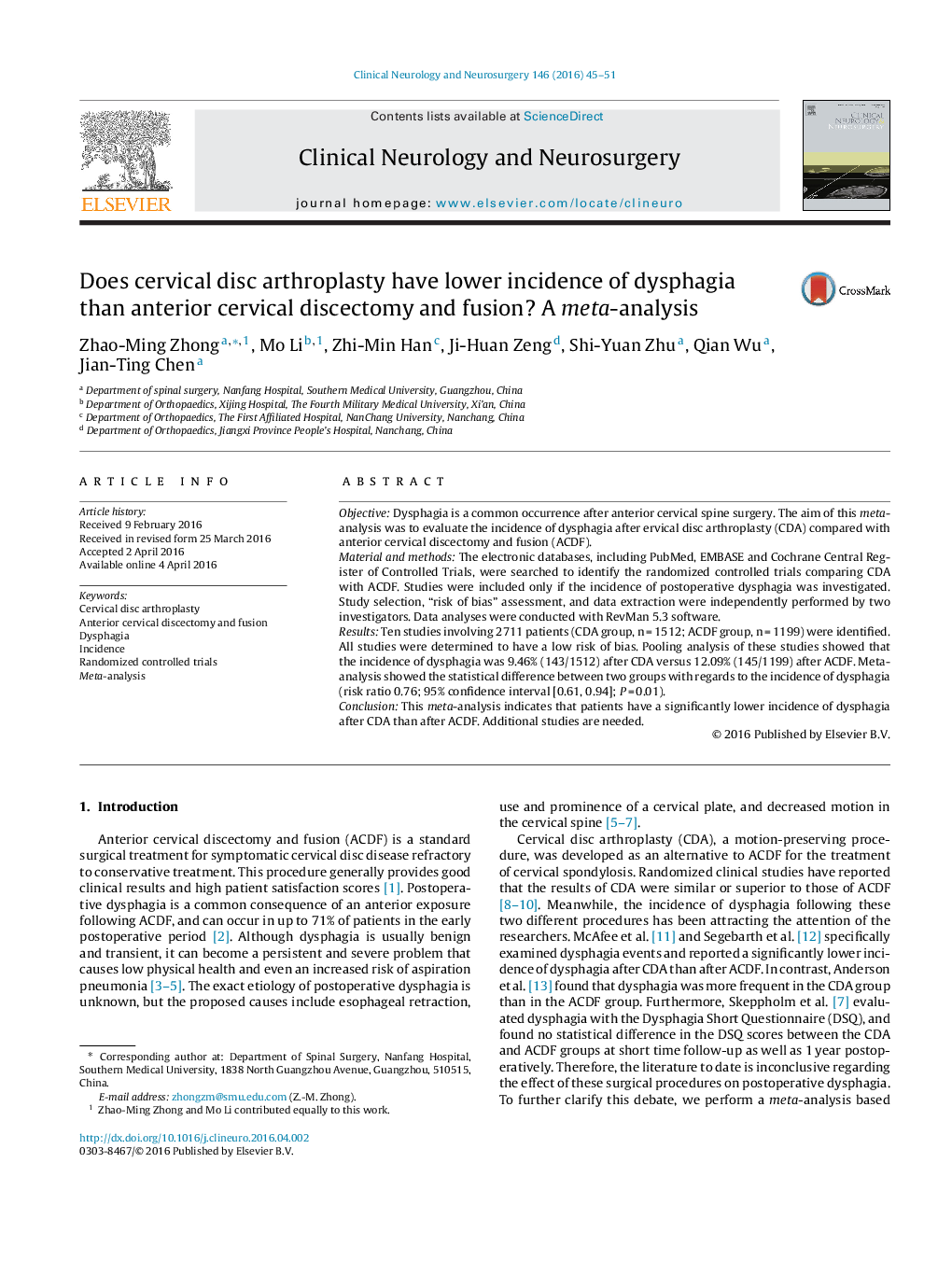| Article ID | Journal | Published Year | Pages | File Type |
|---|---|---|---|---|
| 3039608 | Clinical Neurology and Neurosurgery | 2016 | 7 Pages |
•Dysphagia is a common occurrence after anterior cervical spine surgery, including CDA and ACDF.•Our meta-analysis of prospective RCTs shows that CDA has lower incidence of dysphagia than ACDF.•Future studies are needed to determine the effect of CDA on dysphagia in the short and long term.
ObjectiveDysphagia is a common occurrence after anterior cervical spine surgery. The aim of this meta-analysis was to evaluate the incidence of dysphagia after ervical disc arthroplasty (CDA) compared with anterior cervical discectomy and fusion (ACDF).Material and methodsThe electronic databases, including PubMed, EMBASE and Cochrane Central Register of Controlled Trials, were searched to identify the randomized controlled trials comparing CDA with ACDF. Studies were included only if the incidence of postoperative dysphagia was investigated. Study selection, “risk of bias” assessment, and data extraction were independently performed by two investigators. Data analyses were conducted with RevMan 5.3 software.ResultsTen studies involving 2711 patients (CDA group, n = 1512; ACDF group, n = 1199) were identified. All studies were determined to have a low risk of bias. Pooling analysis of these studies showed that the incidence of dysphagia was 9.46% (143/1512) after CDA versus 12.09% (145/1199) after ACDF. Meta-analysis showed the statistical difference between two groups with regards to the incidence of dysphagia (risk ratio 0.76; 95% confidence interval [0.61, 0.94]; P = 0.01).ConclusionThis meta-analysis indicates that patients have a significantly lower incidence of dysphagia after CDA than after ACDF. Additional studies are needed.
